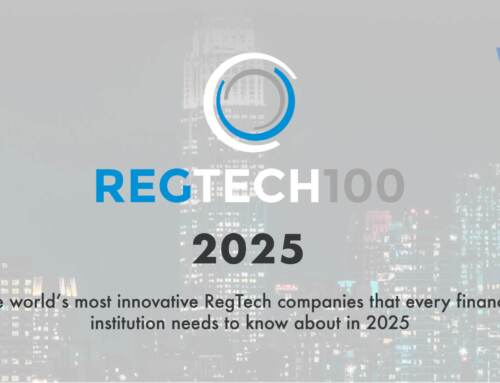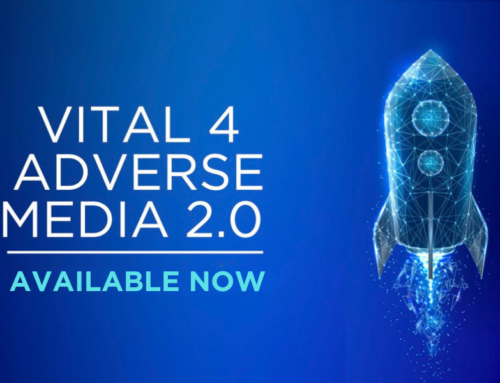Wealthy and influential individuals and companies have used anonymous entities to hide their wealth, as evidenced in the 2016 Panama Papers and 2020 FinCEN Files Investigations.
In January 2021, the FY 2021 National Defense Authorization Act became law, including the Anti-Money Laundering Act of 2020 (AMLA 2020). Part of the AMLA 2020 is the Corporate Transparency Act (CTA). The AMLA 2020/CTA amends the Bank Secrecy Act (1970) (among other things) to require that companies (corporations, limited liability companies, and similar entities) report information about the beneficial owners (the persons who ultimately own or control their company). The reporting requirement is intended to enhance national security by making it harder for bad actors to exploit opaque legal structures to launder money, finance terrorism, proliferate arms dealing, traffic humans and drugs, or any other activity that may harm Americans.
On April 1, 2021 – FinCEN issued an Advance Notice of Proposed Rulemaking (ANPRM) to solicit comments on questions focused on implementing the beneficial ownership provisions of the CTA. The purpose of the ANPRM is to request public comment on a range of questions related to implementing the beneficial ownership reporting provisions of the CTA. The comments closure date was 5/5/2021.
The CTA and the AMLA 2020 is the most significant change to the BSA of 1970 and to other anti-money laundering/counter-terrorism financing laws since the US PATRIOT Act of 2004.
The current law leaves us some important questions:
- When will it be finalized and how will this be implemented and supported?
- FinCEN has a lot of work to do to build the database
- How does the database work, and who has access?
- Will SARS/CTRs be part of the database?
CTA requirements / Definitions
The CTA requires that FinCEN maintain a database (secure, confidential, and non-public) of the reported beneficial ownership information. The CTA further allows FinCEN to disclose beneficial ownership to appropriate protocols (TBD) and for specific purposes and recipients like law enforcement (proposed). Privacy and sharing of information from the FI’s is an open item; its manner of function is yet to be determined. Financial Institution Customer Due Diligence regulations should be revised to reflect new direct reporting of beneficial ownership.
Reporting requirements
In general, the CTA requires a reporting company (banks)—in accordance with rules to be issued by FinCEN—to submit to FinCEN information that identifies the beneficial owner(s) and applicant(s) of the reporting company. Specifically, reporting companies must report, for each identified beneficial owner and applicant, the following information: (i) Full legal name; (ii) date of birth; (iii) current residential or business street address; and (iv) a unique identifying number from an acceptable identification document or the individual’s FinCEN identifier. (Federal Register 4/5/2021). This reporting should include the “claim” of the beneficial owner %.
What is a UBO
The CTA defines a beneficial owner of an entity as an individual who, directly or indirectly, through any contract, arrangement, understanding, relationship, or otherwise (i) exercises substantial control over the entity, or (ii) owns or controls not less than 25 percent of the ownership interests of the entity. In addition, the CTA defines a reporting company as a corporation, LLC, or other similar entity that is (i) created by the filing of a document with a secretary of state or a similar office under the law of a state or Indian tribe, or (ii) formed under the law of a foreign country and registered to do business in the United States by the filing of a document with a secretary of state or a similar office under the laws of a state or Indian tribe.
Additional Considerations of the AMLA 2020
The AML act of 2020 is made of 56 sections in five titles and is 86 pages long. Some key provisions of the regulation are:
- NEW BENEFICIAL OWNERSHIP REQUIREMENTS
- The Corporate Transparency Act, which is part of the AMLA, will require new and existing state and tribal corporations, limited liability companies, and other similar entities, as well as similar non-U.S. entities that register or are registered to conduct business in the United States (Reporting Companies), to report personal identifying information to FinCEN for their natural-person beneficial owners and for the applicants who establish or register the entities.
- Establishment of National AML and Counter-Terrorism Priorities
- The Act requires the Secretary to establish, in consultation with DOJ, federal and state financial regulators, and relevant national security agencies, national priorities for AML and countering the financing of terrorism (CFT) by June 30, 2021. FinCEN and prudential regulators then expect financial institutions subject to an AML program requirement to ensure that their AML programs and risk assessments address these priorities and that financial regulators include an evaluation of compliance with this requirement in their regular examinations affected institutions.
- Creation of a New Office of Domestic Liaison within FinCEN
- The Act establishes a new Office of Domestic Liaison within FinCEN to promote the coordination and consistency of supervisory guidance from FinCEN, federal functional regulators, state bank supervisors, and state credit union supervisors regarding the BSA.
- Expanded Definition of “Financial Institution” to Include “Dealers in Antiquities” and “Virtual Currencies”
- The Act expands various definitions throughout the BSA to include virtual currency, described as “value that substitutes for currency.” These definitions include:
- defining a “financial agency” subject to regulation under the Act to include foreign persons that provide services relating to virtual currency;
- defining “currency exchangers” to include entities that exchange virtual currency for fiat currency or funds;
- defining money transmitters to include transmitters of virtual currency;
- allowing the Secretary to provide by regulation that “monetary instruments” include value that substitutes for more traditional monetary instruments such as checks or money orders; and
- revising the definition of money transmitters that must register with FinCEN to include those who transmit virtual currency.
- The Act expands various definitions throughout the BSA to include virtual currency, described as “value that substitutes for currency.” These definitions include:
- WHISTLEBLOWER INCENTIVE AND PROTECTION
- When an anti-money laundering enforcement action brought by the Department of Justice (“DOJ”) or the U.S. Treasury Department results in monetary sanctions of over $1 million, the Secretary of the Treasury “shall” pay an award to whistleblowers who voluntarily report original information that helps lead to successful enforcement action. AMLA, § 6314(a).
- PILOT PROGRAM ON SHARING SARS WITH FOREIGN AFFILIATES
- The Act requires the Secretary to promulgate rules by January 1, 2022,
- Establishes a pilot program that will permit participating financial institutions to share information related to SARs with their foreign branches, subsidiaries, and affiliates for the purposes “of combating illicit finance risks.”
- No sharing will be allowed with branches, subsidiaries, or affiliates located in China, Russia, state sponsors of terrorism, federally sanctioned jurisdictions, and other jurisdictions as determined by the Secretary.
- EXPANSION OF SUBPOENA AUTHORITY
- The Act broadens pre-existing authority under the BSA at 31 U.S.C. § 5318(k) to allow Treasury or DOJ to subpoena the financial records of non-U.S. (or foreign) banks that hold correspondent accounts with U.S. financial institutions. Under the new authority, these agencies will be able to demand information from the foreign bank about its use of the U.S. correspondent account and any account of the foreign bank, including records maintained outside the United States. While Treasury and DOJ have historically used the pre-existing authorities judiciously, recent use is more aggressive. Most notably, it was used to demand records from three Chinese banks about the use of their correspondent accounts by alleged North Korean agents, which the D.C. Circuit upheld in a 2019 landmark decision.
- BSA PENALTY INCREASES
- The Act provides additional civil penalties for persons who violate the BSA after having done so previously. For each further violation, effective immediately, repeat offenders now are subject to additional fines of three times the profit gained or loss avoided due to the violation, or two times the maximum allowable penalty of the breach, whichever is greater. In addition, the previous underlying violation must have occurred after the Act became effective on January 1, 2021.
- Individuals who commit “egregious” violations of the BSA will be barred from serving on the board of directors of a U.S. financial institution for ten years. An “egregious” violation is defined as a criminal violation that results in conviction and for which the maximum term of imprisonment is one year, or a civil violation that is willful and where the violation facilitated money laundering or the financing of terrorism.
- A person convicted of violating the BSA may be fined an amount equal to the profit gained from the violation. In addition, employees of financial institutions will be required to repay any bonus they received during the year in which the violation occurred or the succeeding one.
- Mandatory Treasury Review of CTR and SAR Requirements
- The Act requires the Secretary, in consultation with federal law enforcement and federal and state banking regulators, to;
- Conduct a formal review of the financial institution reporting requirements relating to CTRs and SARs and to
- Propose changes to reduce unnecessarily burdensome regulatory requirements and ensure the continued use of such reports against statutory requirements.
- Include a review of rules and guidance issued to implement CTR and SAR provisions
- Consideration of whether the dollar thresholds for the reports require adjustment
- Review of fields that should be designated as critical on the SAR form and whether additional exemptions to CTR reporting should be allowed to avoid reports that have little or no value to law enforcement.
- The Secretary must submit a report of her findings to Congress by January 1, 2022, and propose rulemaking to implement the report’s findings.
- The Act requires the Secretary, in consultation with federal law enforcement and federal and state banking regulators, to;
- Practical Considerations
- Beneficial Ownership Registry
- Although the Registry will take some time to set up, banks and other financial institutions subject to due diligence requirements should plan whether and how they will use the information about beneficial owners and control persons that will be available through the Registry in cases where customers consent to sharing it.
- This information is not limited to a single control person and includes information about applicants who establish or register corporations. It may provide additional relevant information about customer risk,
- Regulators may expect financial institutions to obtain and make use of such information where possible.
- On the other hand, using the Registry to obtain beneficial ownership information is not likely to relieve financial institutions from updating such information on a risk basis or when new accounts are opened, or from other diligence activities.
- It will be important to understand how the new Registry and the provisions for the use of its information interact with other requirements, in particular, with FinCEN’s CDD Rule.
- Separately, companies generally may wish to start considering whether they fit within the many exemptions to the requirement to provide identifying information on beneficial ownership and applicants (i.e., the person or persons who establish or registers the corporation).
- Virtual Currencies
- Virtual currency businesses that may have previously assessed their business model as not captured by FinCEN’s virtual currency guidance should ensure that their analysis on this issue is air-tight.
- FinCEN’s efforts to codify the application of the BSA to virtual currency, along with recent enforcement and remarks throughout 2020, indicate an increased focus on virtual currency business enforcement in 2021 and beyond.
- Dealers in Antiquities
- Depending on the scope of any final rules FinCEN may issue, dealers in antiquities that become subject to BSA rules should not underestimate the amount of time and investment required to develop and implement an effective AML program.
- A careful assessment of a dealer’s AML risk is the recommended first step. Without a thorough risk assessment, a dealer can waste significant time and money building an AML program that does not fit its risk profile, fails to meet regulatory expectations, and in the long run, may cost the organization more in monetary terms and reputational damage.
- New CTR and SAR Rules
- Any change to the CTR and SAR reporting rules will impact financial institutions significantly. If, for example, CTR and SAR transaction amount reporting thresholds are adjusted downward, resulting in more transactions subject to reporting, this could have significant operational impacts on financial institutions in terms of resources and procedures.
- An adjustment upward could also have an operational impact, as such a change may come with greater expectations on the type of information filed on transactions that do remain in scope.
- The Act does require FinCEN to consider streamlining these reporting processes and therefore offers some hope that other process improvements accompany any decision on thresholds, but this remains to be seen.
- That entities do not share with Russia, China, State Sponsors of Terrorism, federal sanctioned jurisdictions.
- National Priorities
- Financial institutions may wish to begin considering how they will amend their risk assessments and AML programs to incorporate national priorities established by FinCEN and separately to add procedures to deal with the new standards that apply to “keep open letters.”
- Beneficial Ownership Registry
Further Considerations
- Customer information that banks have is the beginning of bringing a picture of the relationship together and identifying the UBO structure of a company.
- Business customer basic information
- PII
- Location
- Ownership information
- Type of business
- What type of product do they have
- Business accounts
- Personal accounts
- Who they transact with, where, and how do they transact?
- Counterparties
- Types of businesses
- Locations
- Business customer basic information
- Corporate Registry information is valuable in risk identification – address information, directorships, and ties to other companies.
- Corporate Ownership/Directorship information
- Business information –
- Location
- Org structure
- Using entity resolution, one can expand the scope of the view to understand counterparties and their relationship, joining counterparties to entities.
- Identify Director X as the same in Businesses A and Z.
- Look at possible shared addresses – that may or may not be shared by the customer.
- Looking for context that will help the investigator find missed risk
- Expand profiles to include traditional account-based techniques – also
- Each account is profiled
- Industry codes and concentration is used
- Up to 7 years of history for the profile
- Mitigating factors are used to reduce false positives
- Cross-reference/ understanding Adv Media (reputational and immediate view of negative trends) PEP (higher levels of risk), sanction and criminal information contributes to a holistic view of the customer
- The depth of insight and lineage over initial and ongoing transaction flows and relationships also supports source of funds / Source of wealth processes (Wolfburg 2021).





